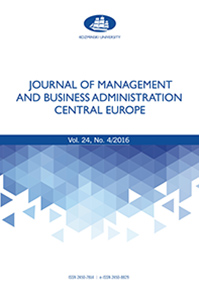Business Models of “New Cooperativism” Organizations
as an Instrument of Sustainable Development
Stimulation
Business Models of “New Cooperativism” Organizations
as an Instrument of Sustainable Development
Stimulation
Author(s): Paweł ZawiślakSubject(s): Business Economy / Management
Published by: Akademia Leona Koźmińskiego
Keywords: new cooperativism; social entrepreneurship; the economy of cooperation
Summary/Abstract: Purpose: The article presents business models developed in organizations of the “new cooperativism”trend, whose application leads to a bottom-up solution of important social problems at the locallevel and, in a broader perspective, stimulation of sustainable development.Methodology: The adopted methodology uses a qualitative approach. The research was conductedin the form of case studies of four organizations following “new cooperativism,” based on in-depthinterviews, observations, and analyses of organizational documents and various types of publiclyavailable materials.Findings: The study showed that “new cooperativism” organizations use in their business modelsthe old practices developed by classical cooperatives, which work well in today’s conditions and havethe potential to provide a positive impact on important socioeconomic dysfunctions, which can befully implemented through modern technologies.Research Limitations: The limitations typical of the case study method entail the uncertainty of resultsreplication, which disallows their broad generalization. However, the obtained results indicate theneed to conduct a scientific diagnosis of emerging collaborative grassroots organizations and the importance of their participation in the three-sector economic concept of the state.Originality: The article and its conclusions are based on empirical research of the practical effectiveness of business models used in organizations of the “new cooperativism” trend.
Journal: Central European Management Journal
- Issue Year: 28/2020
- Issue No: 3
- Page Range: 168-195
- Page Count: 28
- Language: English

